
a real soundtrack for an imaginary spy film
Supplement to Bongo's
- MEET THE REVOLUTIONARY
POETS SOCIETY
Copyright © 2002 - 2006 Arthur Jarvinen
 |
The INVISIBLE
GUY a real soundtrack for an imaginary spy film Supplement to Bongo's
- MEET THE REVOLUTIONARY
POETS SOCIETY Copyright © 2002 - 2006 Arthur Jarvinen |
| CD & Merch (coming) |
Musicians
and Credits |
the Live
Band info |
send e-mail |
|
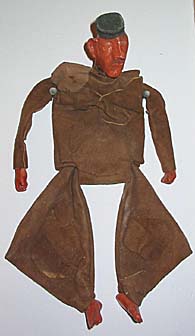 |
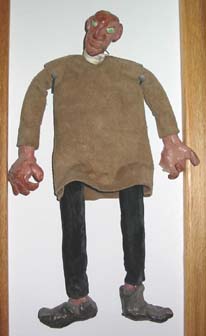 |
 |
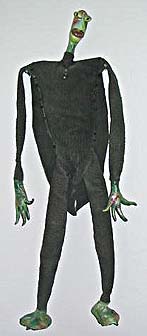 |
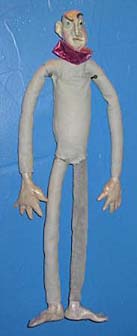 |
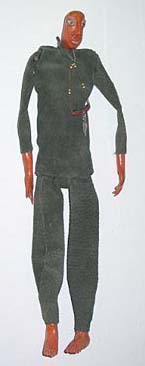 |
| Gustav
"The Concrete Poet" got his nickname
from his
buddies on the construction crew, who really admired the quality of his
work. That inspired him to try his hand at verse, the results of which
he renders in the foundations and slabs he pours on job sites. Most
people
would never guess, but poetry's there, concealed by saltillo tile,
hardwood
flooring, or indoor/outdoor carpet squares. |
Otto
Otto is an "anti-poet". Not that he's actually against poetry per se, but his work in the medium consists solely in destructive acts directed at the poems of others. (I suppose you could just call him a critic.) He has made "burnt poems", "flushed poems", and "painted-over poems", feigned falling asleep and snored loudly at readings, gotten collectible first editions signed with disappearing ink, and once released a dozen skunks into a book store specializing in limited edition and out-of-print books, especially poetry. However, fully appreciating that it is only the works he
brutalizes
that give his own work validity and a raison d'etre he has
formed
with Gustav a kind of bond, singling out his work in particular and
enjoying
the fact that the scale of Gustav's labors by default brings a similar
grandiosity to his own; few of the buildings Gustav has worked on are
extant. |
Kiki
Poems Pro-Testing, her latest "book", is in fact nothing more than a stapled photocopy that she passes around to whomever will take one, or leaves in piles at coffee houses, brew pubs, and food co-ops, where they are generally discarded in short order. She advocates, in verse, testing of all
sorts,
having developed an almost neurotic enthusiasm for graduated
assessments
of achievement, calibrated expressions of innate ability, records of
one's
performance as compared to that of others (especially when commemorated
by shiny mementoes of same), and documentation of progress towards
clearly-defined
personal goals, probably as a result of the ease with which she
consistently
outranked her peers in grammar school at all of the above. She's even
in
favor of nuclear arms testing and, though not a Scientologist, has
taken
their test simply as a test of her own to assess its ability to
reveal
anything about her personality. And, she owns her own polygraph, to
which
all men are subjected to on a first date. (She has never dated the same
man twice.) |
Jules
He doesn't consider himself a poet so much as a translator with a specialty in "transphibian verse". Jules came to an early Society meeting/reading quite by accident – he was already at Bongo's having a latte before they showed up and took over – and, noticing the aquarium next to the wall, decided to share the work in progress with its inhabitants. As they say, the rest is history; no meeting of the Society would be complete without him, face submerged, burbling the words of the others into the water. "Between Two Worlds", his collection of human spoken words for
fish,
is simply a list of poems that Jules thinks work particularly well when
read under water and that fish seem to like. Since it contains no
original
material he gives it away for free, but he'd like you to pay him
royalties
if you use the idea. |
Bertram
Bertram harbors a nearly lifelong revulsion to anything called
"poetry"
– he even has a hard time with dance because it has been described as
"poetry
in motion" - the result of being forced to read Evangeline and
write a report on it while in the eighth grade. He joined the Society
as
a statement of spite for poets everywhere, delighting in the fact that,
as per their own bylaws, he has to be permitted his allotted time
during
their reading sessions where he always sits in dead silence for the
duration,
hence earning his moniker "The Mute Poet". The rest of the society are trying to figure out how to change the rules, and discussing the possibility of screening applicants, although most of them are not totally comfortable with such elitism. So, for now it's still like the Unitarian Church; you just sign in. |
Zymon
He writes "difference poems". Using quasi-Kabalistic criteria and influenced by the work of Elizabethan magus John Dee, Zymon calculates the differences between the numerological values of all adjacent letters in the poems of famous authors to acquire new letters and hence entirely new poems which prove irrefutably, when properly interpreted, that the originals had to be written either by God or James Joyce (the latter in most cases). |
| Dolls by Olga, from the private
collections of
Arthur Jarvinen and Miroslav Tadic. The Revolutionary Poets Society and all characterizations thereof are fictions by Arthur Jarvinen and should not be construed as being in any way related to or implied by Olga's creations or her intentions for the use of their images. |